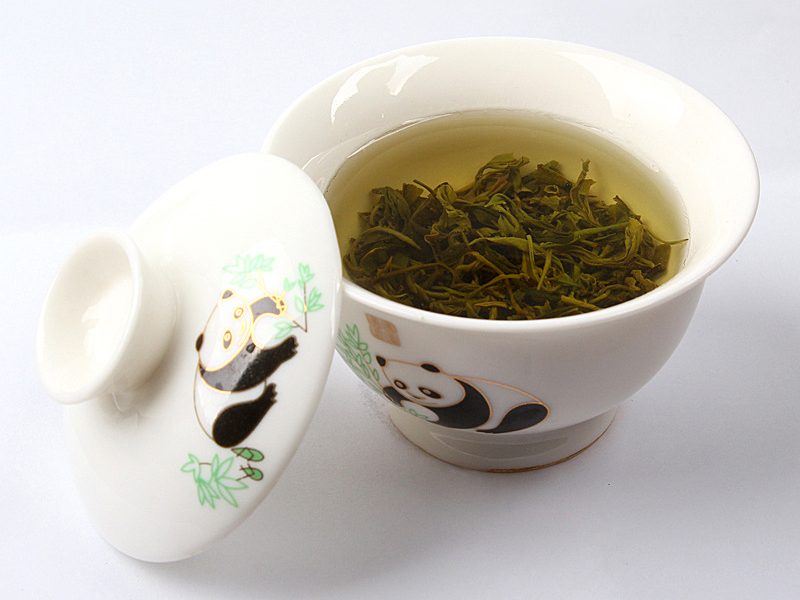
"There are people right now who are getting their loved ones off the ventilator; there are people who are getting their loved ones out of the ICU [intensive care unit] and back to the regular floor; and there are actually patients coming out of the hospital and going back home to their loved ones recovering from COVID, because there are treatment strategies that work," Bartlett told hosts Pastor David Scarlett and Amanda Grace during the tour's Health and Freedom Conference.
Scarlett shared the interview in the first episode of his Brighteon.TV program "His Glory."
Budesonide reduces risk of hospitalization and recovery time of COVID-19 patients
During the interview, Bartlett related that researchers at the University of Oxford found that early treatment of inhaled budesonide reduced the need for urgent care and hospitalization in people with COVID-19 by as much as 90 percent. The study also found that inhaled budesonide given to patients with COVID-19 within seven days of symptoms also reduced recovery time.
Participants allocated the budesonide inhaler also had a quicker resolution of fever, symptoms and fewer persistent symptoms after 28 days. The study also demonstrated that there was a reduction in persistent symptoms in those who received budesonide.
"I want people to be equipped and prepared. I want them armed and dangerous against the virus. I want the people to win against the virus," Bartlett said.
Some doctors are afraid
Unfortunately, not all doctors do. "Many of them are scared of doing something that's not in line with the CDC's [Centers for Disease Control and Prevention] protocol," he said.
That's why Bartlett encouraged people to take their stand now.
"This is not the time to just sit on the sidelines. They [the doctors] might not be listening to the right voice, so you have to stand up for your loved ones. You're the advocate for your loved one in the hospital right now," he said.
But some medical practitioners are going against CDC protocols to save lives. One of them is Dr. Ben Marble, who created the telemedicine website MyFreeDoctor.com at the start of the pandemic. According to Bartlett, volunteer doctors at the website have treated over 20,000 acute COVID patients with a near-perfect success rate of 99.98 percent.
In an interview last year that racked up more than 4 million views in less than a month, Bartlett said he has a 100 percent survival rate for his COVID patients since the start of the pandemic by using the treatment strategy centered on budesonide. He's also recommending an antibiotic called clarithromycin, along with zinc to enhance immune function and low-dose aspirin to help prevent clotting issues seen with the disease.
Budesonide widely used for over two decades
Doctors have prescribed budesonide for more than 20 years as preventive medicine for asthmatics. In theory, employing inhaled budesonide to fight COVID-19 makes practical sense.
Scientists have learned that the morbidity from COVID-19 occurs because of the devastating effects of the virus and from an inflammatory state that begins about a week or so into the illness. If physicians can interfere before the surge of inflammation begins, the disease might be prevented from progressing in severity and keep patients out of hospitals.
Bartlett has written a paper with case reports describing favorable outcomes for two of his patients with the regimen. A lab study in the U.S. also showed that budesonide inhibited the ability of a coronavirus to replicate itself and inflame the airways.
FDA's only approved drug for COVID-19 causes multiple organ failure
The only treatment for the disease approved by the Food and Drug Administration (FDA) involves remdesivir. It is approved for use in adults and children at least 12 years old who weigh at least 88 pounds (40 kilograms).
Remdesivir is an antiviral medication that targets a range of viruses. It was originally developed over a decade ago to treat hepatitis C and a cold-like virus called respiratory syncytial virus (RSV). Remdesivir wasn't an effective treatment for either disease, but it showed promise against other viruses.
It works by interrupting the production of the virus. Coronaviruses have genomes made up of ribonucleic acid (RNA). Remdesivir interferes with one of the key enzymes the virus needs to replicate RNA, preventing the virus from multiplying.
According to reports, up to 31 percent of patients who received remdesivir have developed multiple organ failure and/or acute kidney failure. (Related: Did Fauci knowingly fast-track approval of drug with deadly COVID-like side effects?)
WHO against use of remdesivir in hospitalized patients
Last November, the World Health Organization (WHO) issued a conditional recommendation against the use of remdesivir in hospitalized patients, regardless of disease severity, as there was no evidence that the drug could improve survival and other outcomes in those patients.
The recommendation was part of a guideline on clinical care for COVID-19. It was developed by an international guideline development group that included 28 clinical care experts, four patient-partners and one ethicist.
The evidence the group had at the time suggested no important effect on mortality, need for mechanical ventilation, time to clinical improvement or other patient-important outcomes. The group recognized that more research was needed to provide higher certainty of evidence for specific groups of patients.
You can watch "His Glory" hosted by Pastor David Scarlett live on Brighteon.TV every Friday from 5 to 6 p.m.
Follow Pandemic.news for more news and information related to the coronavirus pandemic.
Sources include:
Please contact us for more information.






















